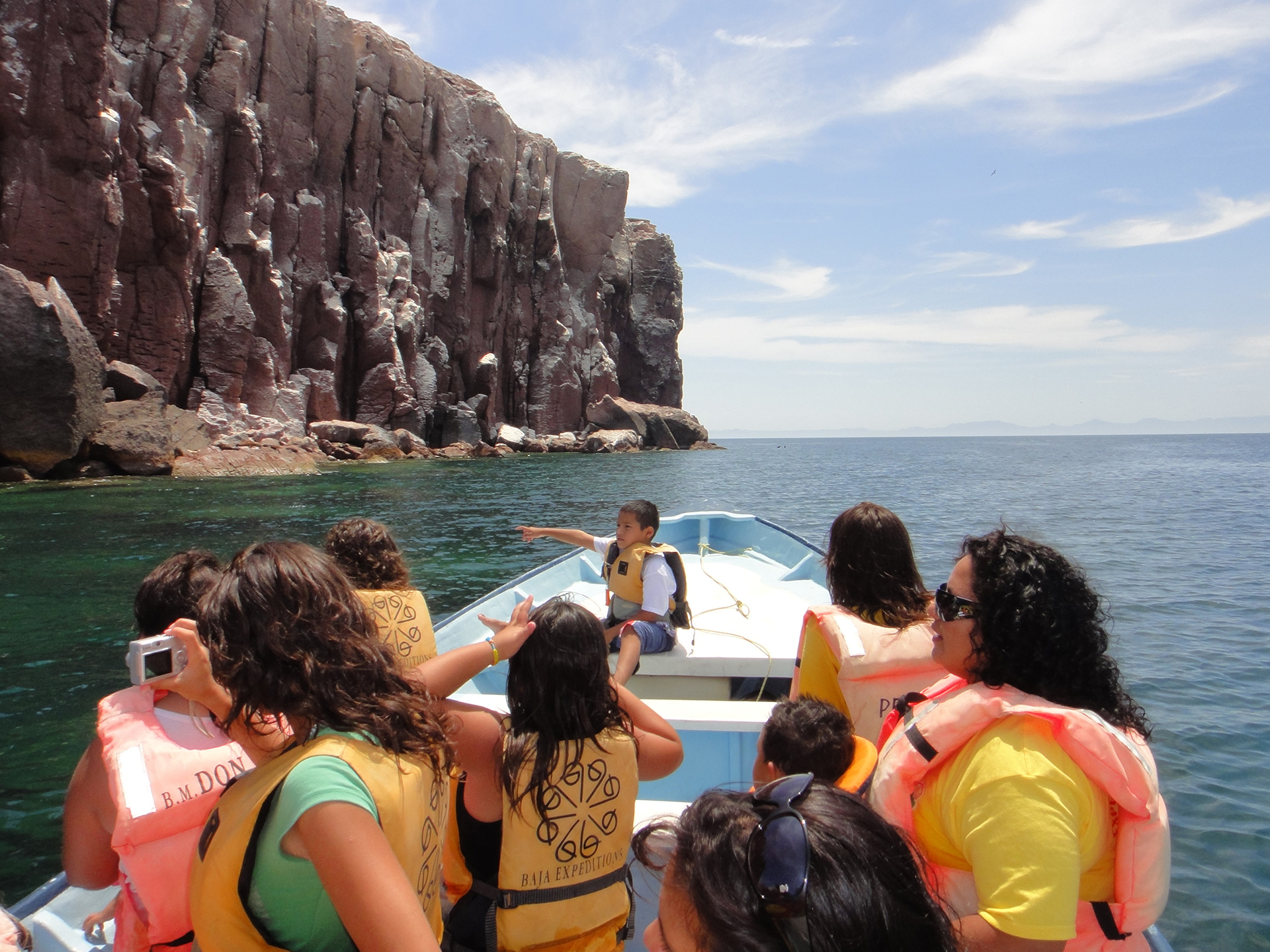Bringing Others from Outside El Manglito Into the Effort
by Nathan Senge
The community surveillance project has taxed the families of El Manglito for years—it is the conquest of a long-term vision in the face of dire need. The lack of sufficient funds to pay all Manglito residents for their work puts the community into constant internal conflict.
But there is no other way.
Ramona Méndez, the mother of senior fisherman Hubert Mendéz, has been a part of this community for fifty-six years, and has been with NOS since 2008. She says the key turning point came when “NOS began to provide some compensation to community members for doing this kind of work.”
“The community surveillance project involves about 20 fishers from OPRE’s 109 members. Even with the small size of the Callo de Hacha clam yield, other people [from outside the community] want to steal them.

“Since last year, we started to realize that there are more Callo de Hachas along the shoreline, and small Catarina scallops as well. Nowadays, they’re both coming back. All of the fishers [from El Manglito] used to fish them illegally all the time. They would go further and further out to get the Callo de Hachas. It wasn’t until NOS gave talks on the importance of not overfishing them that some started to change their behavior slightly and said, alright we just can’t fish right now.
“But when they started the community surveillance work, they weren’t getting paid by NOS. NOS gave a little help for gasoline. So they would do the surveillance to see some changes. The deal breaker was when NOS provided them with some salary for doing the surveillance. That helped them. They were still going through economic hardship, but that helped a lot. NOS gave them scholarships for their kids, complete with English lessons and Math. Some guitar lessons, too. And they gave them uniform discounts for school. That’s a lot of income. This financial aid sealed the deal and the fishers agreed not to fish anymore, as it was all for money that they used to fish illegally. It was all to provide for their families.
“Right now illegal fishing is going on but it’s not being performed by any of the [OPRE] community members. It’s being done by others from outside who are not involved with NOS in any way. They’re coming from other neighborhoods. They know what’s going on here and they are robbing it. The news of our success has spread. The fishers here are trying to talk to them about what’s going on here. They do manage to talk to a lot of them, that we’re restoring this place and that they don’t have permits. Please understand what we are trying to do, they say. A lot of them do nicely understand, but many others get angry. And the robbing continues, so the surveillance work goes on 24/7. And it’s not perfect. Sometimes they have to do it by foot—they’re not always in a boat. They have four shifts from six a.m. to noon, from noon to six p.m., from six to midnight, and from midnight to six. Only the fishers in OPRE go on these shifts. Women from OPRE [about 20 of the 109 members] go on these shifts, too. For each shift from Monday through Friday, there’s two people in a shift. On Saturday and Sunday there’s only one person per shift. Some help with surveillance and others are involved with cleaning the shells and other such tasks.”
Nathan Senge is a Writer for the Academy for Systems Change. He holds a summa cum laude B.A. in Chemistry and Physics from Dartmouth College and a M.A. in Journalism and Media Studies from the University of Colorado at Boulder.
